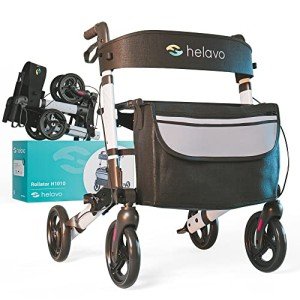The Essential Guide to Lightweight Walkers: A Comprehensive Overview
As life goes on, mobility can often end up being minimal for various factors, such as age, injury, or health conditions. For Click Link of people, having the right mobility aid is vital for keeping self-reliance and confidence while moving about. One of the most popular alternatives readily available on the market today is the lightweight walker. In this post, we will dive deep into the world of lightweight walkers, exploring their features, advantages, and considerations for picking the best one.
What is a Lightweight Walker?
A lightweight walker is a type of mobility aid designed to support people who need assistance with walking but require a solution that does not concern them with extreme weight. These walkers are normally made from durable yet lightweight products such as aluminum, making them easy to lift and maneuver. They can considerably boost mobility and promote a sense of independence for users.
Features of Lightweight Walkers
Choosing the best lightweight walker includes understanding the various features they use. The following table details some common features and specs to search for when selecting the ideal walker:
| Feature | Description |
|---|---|
| Product | Typically made from aluminum or other lightweight materials for easy mobility. |
| Weight Capacity | Generally supports between 250-350 pounds, but this varies by design. |
| Foldable Design | Lots of lightweight walkers come with a foldable function for easy transport and storage. |
| Height Adjustability | Users can customize the height to guarantee convenience and appropriate posture. |
| Hand Grips | Ergonomic handgrips supply added convenience and security while walking. |
| Wheels | Some models include rubberized wheels for smoother mobility, while others are designed without them for a stronger base. |
| Devices | Choices for baskets, trays, or other add-ons to improve functionality. |
Advantages of Using a Lightweight Walker
Lightweight walkers provide numerous advantages, making them an ideal choice for those requiring mobility assistance. Here are some significant benefits:
- Enhanced Mobility: Lightweight walkers make it possible for users to browse through areas with ease, promoting independence.
- Easy to Carry: Their lightweight design enables users to raise and transport them without difficulty.
- Stability and Support: Walkers offer a stable base for users, making walking safer and decreasing the danger of falls.
- Enhanced Posture: The adjustable height feature helps users maintain proper posture while walking, contributing to long-term health.
- Customizable Features: Many designs offer a variety of devices that can be tailored to fit individual requirements.
- Cost: Compared to other mobility help, lightweight walkers are often more budget-friendly without sacrificing quality.
Considerations When Choosing a Lightweight Walker
Picking the best lightweight walker involves considering different elements that line up with specific requirements. The following list provides crucial elements to analyze:
- User's Weight and Height: Ensure the walker can accommodate the user's weight and can be changed for height.
- Terrain: Consider where the walker will mostly be used (indoor, outdoor, smooth surfaces, irregular terrain).
- Practical Needs: Think about any specific requirements such as walking speed, frequency of usage, and preferred features (like baskets or removable seats).
- Portability: Determine whether the walker needs to be easily portable for outings or trips.
- Kind of Walker: Decide in between standard, wheeled, or rollator walkers based upon the user's balance and walking ability.
Often Asked Questions (FAQ)
1. Who should use a lightweight walker?
Lightweight walkers are ideal for elderly people, those recovering from injury, or anybody who needs additional support while walking.
2. Just how much do lightweight walkers normally cost?
Prices can differ based on features and brand name. Lightweight walkers can vary from ₤ 50 to ₤ 250, with advanced designs costing more.
3. Exist walkers specifically created for outdoor usage?
Yes! Some lightweight walkers included larger wheels and more durable building, making them suitable for outdoor surface.
4. How do I know which height is suitable for the walker?
When utilizing a walker, the user should adjust the handgrips to elbow level when their arms are relaxed at their sides, preserving a slight bend in the elbows.
5. How frequently should you inspect a lightweight walker?
It's good practice to examine the walker for wear and tear regularly. Look for any loose parts, worn grips, or damaged wheels, particularly if used daily.
In summary, a lightweight walker serves as an important tool for people in need of mobility assistance. Its mix of ease-of-use, safety, and modification permits users to confidently engage with their surroundings while maintaining independence and individual mobility. When selecting the ideal walker, it's vital to think about the user's specific requirements, chosen features, and desired usage.
With various models available in today's market, potential users can discover the perfect lightweight walker that will not just enhance their mobility however likewise enhance their general quality of life. After all, everyone is worthy of the liberty to move with confidence and ease.

